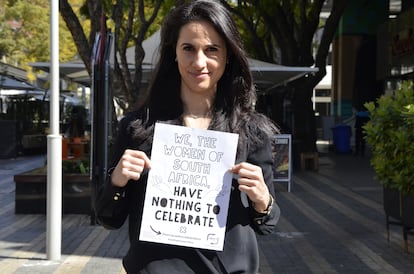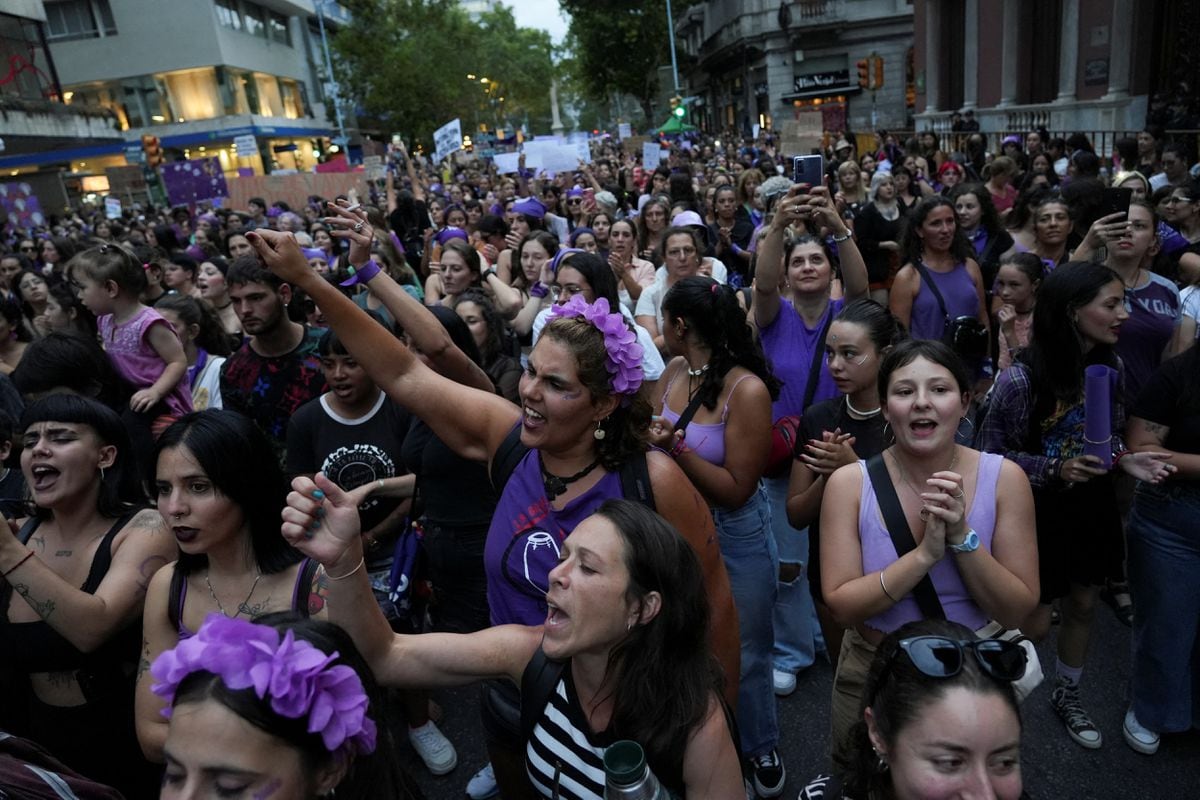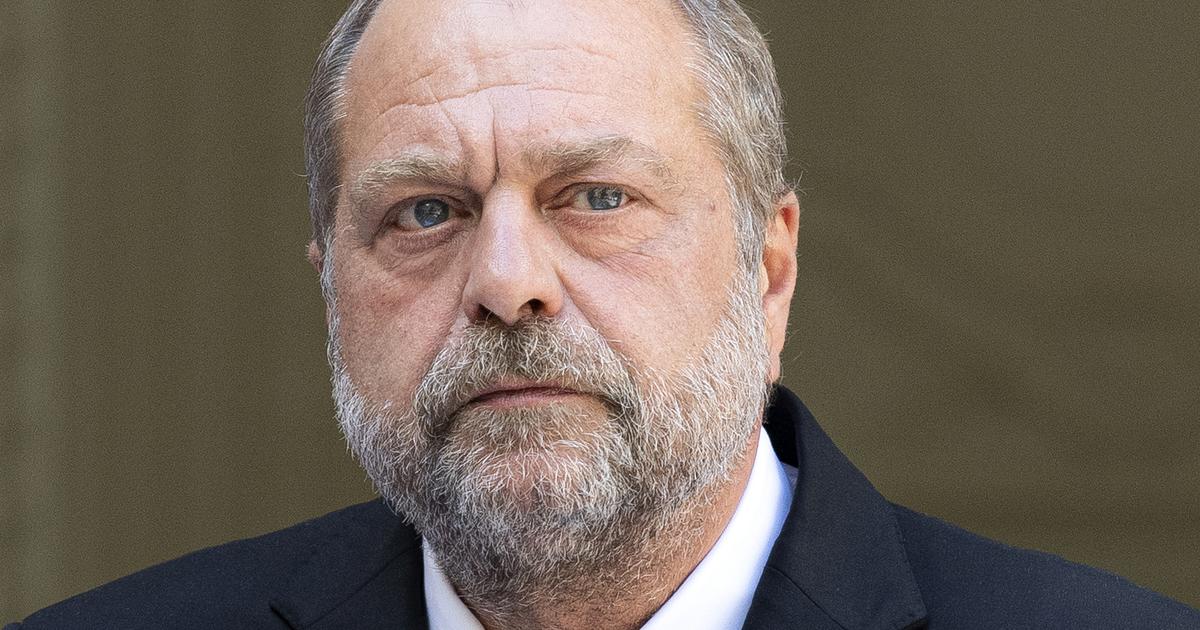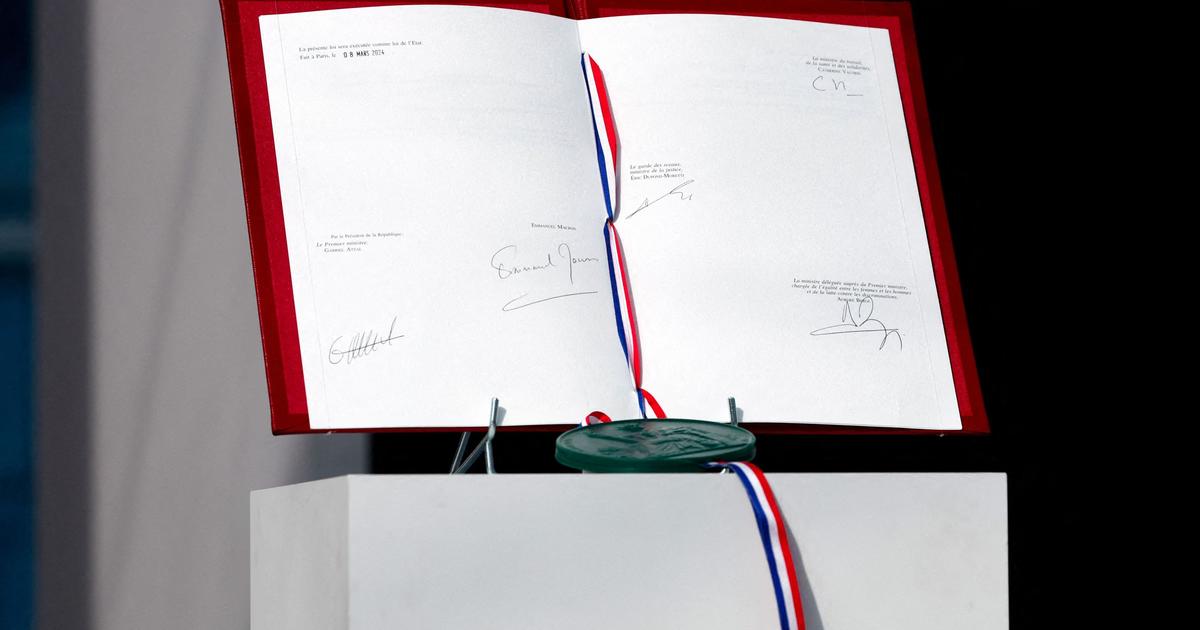Poster denouncing sexist violence from the South African campaign 'No cause for celebration' (nothing to celebrate).
Note to readers: EL PAÍS offers openly all the content of the Future Planet section for its daily and global contribution to the 2030 Agenda. If you want to support our journalism,
subscribe here.
Lee-Anne Germanos walks the two miles from her apartment in Johannesburg's Illivo neighborhood to the Rosebank shopping center on a Sunday morning.
She would like to do it alone, enjoying the winter sun in southern Africa, but she doesn't dare and walks with her boyfriend.
“There is no reason to celebrate Women's Day because I, as a woman in South Africa, am afraid to walk alone even down a busy main street in broad daylight.
And I don't do it because I know I can be robbed, kidnapped, sexually harassed or even killed, ”he says with the serenity that reaches the one who has normalized a situation.
More information
UN Women Director: "Gender-based violence is a shadow pandemic, as devastating as the coronavirus"
Gender-based violence blocks development
A class to curb the epidemic of sexual assault on minors
The statement does not imply acceptance and submission and, therefore, Germanos co-founded in June of last year with Leanne Berger, the non-governmental organization The Embrace Project (The embrace project).
Through the virtual platform they have created, they sell works of art from the network of artists with whom they collaborate, and the profits go to local organizations that work in their communities to combat gender violence (GBV, in its acronym in English). ).
The figures on violence perpetrated against women and minors are terrifying. Bheki Cele, South African Police Minister, assured in 2019 that 114 cases of rape are registered per day (a figure that should be multiplied by three, according to the estimates of cases that are not reported) and that a woman is murdered every three hours in the country. These are numbers that have not stopped growing during the last decade, registering between 2018 and 2019 an increase of 4.6% in the number of deaths (21,022) and sexual assaults that include rape (52,420). In fact, the UN predicted that during the three months of confinement to contain the effects of COVID-19, domestic violence in South Africa would increase by 20%. And only in the first week of confinement, Cele warned that more than 87 had been reported.000 cases of gender-based violence throughout the country, although it was later shown that the figure was much lower: 2,300.
Nothing to celebrate
The Embrace Project has collected more than 5,200 signatures through its #Nocauseforcelebration online campaign.
These will accompany a letter to President Cyril Ramaphosa about which they will inform him this Monday by email, and which will be delivered in person at the Union Building, headquarters of the South African Government, in Pretoria, when the month of Women ends, to end of august.
“The figures for Violence Based on Gender and Femicide (VBGF) have not decreased.
In 2020, a virtual protest was held to reach the president for the first time at the national level.
This was how he managed to promote the Emergency Response and Action Plan (which dates from 2019) so that the different government departments fight what he calls the second pandemic.
It is about training the institutions that fight against this scourge ”, explains Germanos, highlighting an action that has not gone beyond paper.
Lee-Anne Germanos, founder of the NGO The Embrace Project, Carla Fibla
In fact, in recent weeks it was announced that the fund to receive financing was ready, but the lack of information, not knowing how to request it or even who it can benefit, has meant that it has not yet been distributed, criticizes Germanos. "In April, the South African Commission for Gender Equality admitted that there is a lack of political will in all government departments to implement the Plan," she comments, and indicates that the UN also, through the Commission for the Elimination of Discrimination against Women has pulled South Africa by the ears. "They found such scandalously high figures that they declared him in a serious state of systematic violation of the Convention to Eliminate all forms of discrimination against women." The situation regarding sexist violence is widely documented,but that does not prevent it from being established and growing.
2019: Turning point
Uyinene Mrwettyana was 19 years old.
On August 24, 2019, she went to the Claremont (Cape Town) post office to pick up a package when the employee detained her against her will in the office, raped her and murdered her.
Under the proclamation and subsequent movement
Am I next?
(Am I next?) Tens of thousands of people took to the streets expressing their frustration and anger.
"In South Africa we have a very violent past, first colonialism, then
apartheid
... Those systems repressed the majority of the population, which generated an oppressed and low level of self-esteem", analyzes Germanos.
It also doesn't help that even in times of democracy it is almost impossible to break the circles of poverty and unemployment.
"Gender violence focuses on achieving a certain control over the most vulnerable, women and children, to feel that something is dominated."
The “culture of violence”, continues the activist, is transmitted to the next generation because “the child becomes a bully by having experienced and lived the attacks, and the girl will find it normal for it to be reproduced in her adult life”.
What happened to Uyinene also made men react and initiatives were created to raise awareness and convey the difficulties that men have in facing the normalized violence against women in South Africa.
"[The movement]
Langa for men
, in Cape Town, is an ally.
We need these types of organizations because men are the problem, the problem is that they kill us and make us victims.
In South Africa, the culture of violence that we have makes men believe that they have the power to rape women.
But in 2019 it was understood that women are not the ones who have to be careful, but that violence must be stopped by those who execute it.
It was a big change ”.
By August 2022
The solution in South Africa, as in other countries that live with the scourge of violence against women, is through education. “In schools, working with young people… We support the NGO Adapt in the settlement of Alexandra (north of Johannesburg) to try to break the circle to which they are condemned for being born in a poor environment and without opportunities. But the State must get involved in the educational system because there have also been many cases of teachers who abuse girls ”.
It is difficult for Germanos to choose short-term actions, which the South African government could implement in the next 12 months to improve the situation.
And when it is decided, it points to “real training so that the police are able to treat women who have suffered rape with respect and care”, as well as to “clean” the police force itself of abuse cases because “we cannot have a police that commits the crimes from which, supposedly, it is protecting us "
In South Africa, the culture of violence that we have makes men believe that they have the power to rape women
Lee-Ann Germanos
It also points out the need for "a great education campaign for the protection of victims, against gender violence";
and finally, he recalls the situation in prisons, “where what cannot happen is that a person who is serving a sentence for a minor crime, such as stealing, is raped in jail and subjected to pressure that when leaving him has become a violent person ”.
The union of the pioneers persists
Rahima Moosa, Sophia Williams, Lillian Ngoyi, Helen Joseph were some of the leaders of the historic demonstration of August 9, 1956 which was joined by another 20,000 South Africans of different cultural origins.
Under slogans such as
We are not free, we are not the same, they
rejected the "passes" for black women that the
apartheid
regime
had established four years earlier.
They marched through the streets of Pretoria to the Union Building to deliver the 14,000 petitions they had collected to the Prime Minister.
55 years later, the South African Government is proud of the Law that supports crime victims and of being able to maintain the debate on the difficulties of combating violence in the country, but its implementation, in practice, remains lacking.
What has not been lost is the union of all women, regardless of their racial origin, in the fight for women's rights.
“We are united in this cause.
South Africa still has many tensions from the past linked to race, but in violence against women I have never seen divisions or tensions.
The struggle of women for their rights was shared, to achieve racial liberation, and now, in full democracy, it is not possible to remain on the sidelines of our struggle ”.
FUTURE PLANET can follow on
,
and
, and subscribe
here
to our 'newsletter'
.





/cloudfront-eu-central-1.images.arcpublishing.com/prisa/6BSAX5VN3NEQ5GOP6ZAECQKKOY.jpg)



